Your basket is currently empty!
Written by
Most Efficient Solar Panels of 2025: Our Expert Review
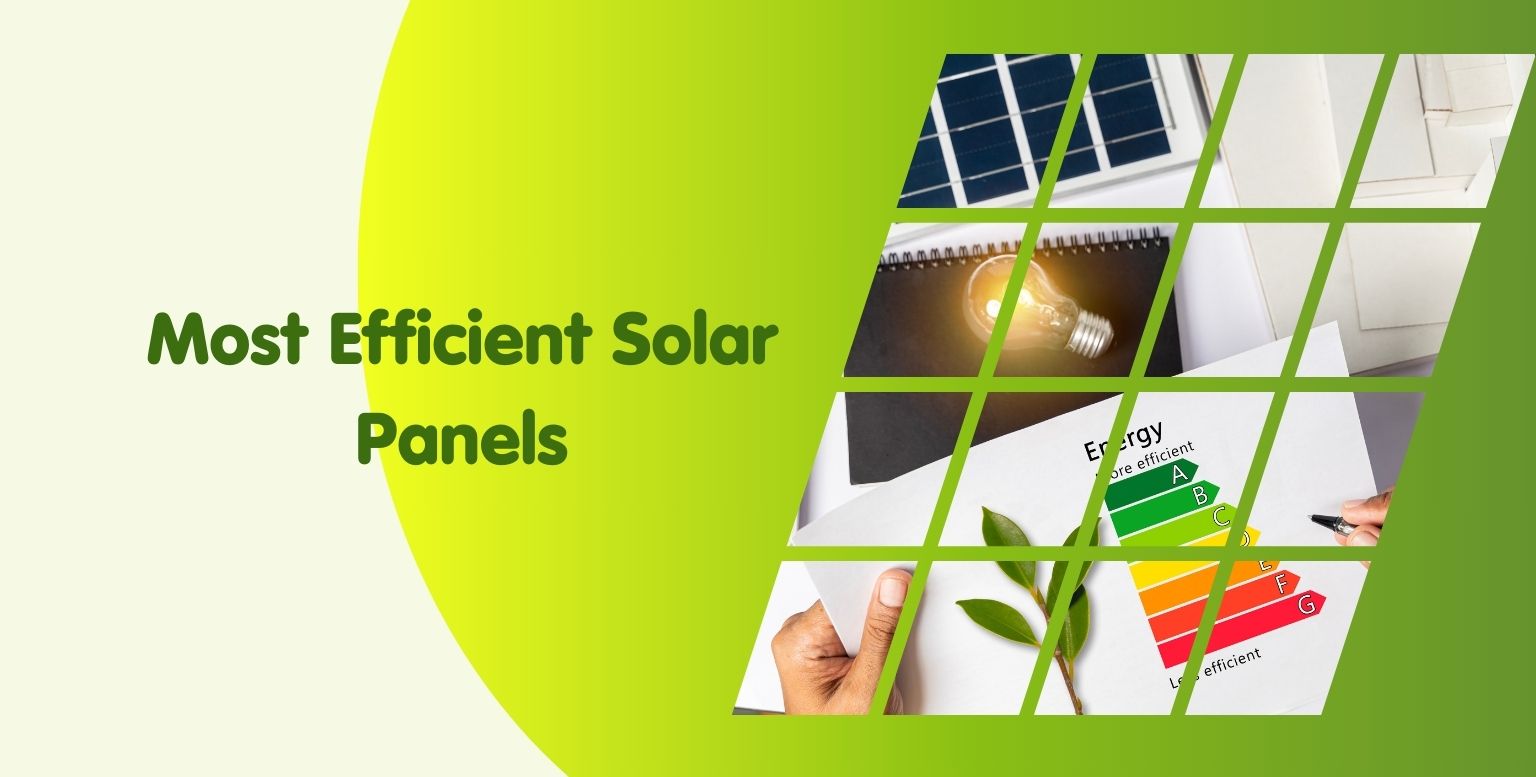
Maximising your solar system’s energy output starts with choosing efficient PV panels.
This guide covers the top efficient residential solar panels of 2025, their performance, unique features, and benefits, helping you make an informed decision to get the best solar panels for your home.
Why not get a solar panel quote from Green Central for a high efficiency solar PV system installation?
Start Your Solar Project Today
Best Solar Panels & Battery Storage Installation Deals
We price match too!
Key Takeaways
- In 2025, the top efficient solar panels include SunPower Maxeon 7, AIKO N-Type ABC White Hole Series, and REC Group Alpha Pure-R, each offering advanced technology and high efficiency.
- Factors affecting solar panel efficiency include the type of solar cells (monocrystalline, polycrystalline, thin-film), installation variables (angle, direction, shading), and climate conditions (temperature, cloud cover, snow, humidity).
- Regular maintenance, monitoring systems, and optimal placement are crucial for maximising the efficiency and longevity of a solar panel system, ensuring peak performance and increased energy production.
Solar Panel Efficiency: What is it?
Solar panel efficiency measures the effectiveness of a panel in converting sunlight into electricity.
Simply put, a panel with a 20% efficiency rating converts 20% of the sunlight it receives into usable electricity.
The significance of this efficiency lies in the fact that panels with higher efficiency can yield more electricity from the same quantity of sunlight, thereby reducing energy bills and carbon emissions. Furthermore, efficient solar panels offer the following benefits:
- They require less space to produce the same amount of power, which is particularly beneficial for residential installations where roof space may be limited.
- They can generate more electricity in areas with limited sunlight, such as cloudy or shaded regions.
- They can provide a higher return on investment over time due to their increased energy production.
Overall, investing in efficient solar panels can lead to significant cost savings and environmental benefits, especially when you install solar panels and use the Smart Export Guarantee.
What is the average solar panel efficiency?
Typical efficiency rates for home systems range from 15% to 23%, with some higher-cost systems achieving up to 40%-50% in laboratory conditions.
Among the commercially available options, monocrystalline solar panels are the most efficient, often exceeding 20% efficiency.
These panels are made from a single, pure crystal of silicon, which allows for higher efficiency and better performance in low-light conditions compared to an average solar panel, such as polycrystalline and thin-film panels.
However, one must strike a balance between efficiency and other factors like manufacturing quality, reliability, and warranty conditions to guarantee the best overall value.
While higher efficiency panels can generate more power in a given space, they do come at a higher cost.
The efficiency rating is calculated by dividing the module’s power rating by the total panel area under standard test conditions, typically measured at 1000W/m² of solar irradiance.
Although no commercially available solar panel is 100% efficient, advancements in solar technology continue to push the boundaries of what’s possible.
When planning your solar panel system, carefully considering these efficiency ratings is important to maximise your investment.
Start Your Solar Project Today
Best Solar Panels & Battery Storage Installation Deals
We price match too!
Top Efficient Solar PV Panels of 2025
In 2025, the market is brimming with high-efficiency solar panels that promise impressive performance and longevity.
The most efficient solar panel options typically have energy conversion rates above 22%, offering increased electricity generation, low degradation, and suitability for limited roof spaces.
Among the top solar panel manufacturers are the producers of SunPower Maxeon 7, AIKO N-Type ABC White Hole Series, and REC Group Alpha Pure-R.
Each of these panels offers unique features and cutting-edge technology that set them apart from the competition.
These panels not only excel in efficiency ratings but also boast advanced technologies that enhance their performance and durability. Some notable examples include:
- SunPower Maxeon 7: Features patented interdigitated back contact technology
- AIKO N-Type ABC White Hole Series: Renowned for its lightweight design
- REC Group Alpha Pure-R: Performs exceptionally well under low-light conditions, making it a versatile choice for various climates.
Examining the specifics of each panel will help us understand why they are the top picks for 2025.
SunPower Maxeon 7
The SunPower Maxeon 7 stands out with an impressive efficiency rating of 24.1%, making it one of the most efficient solar panels available in the market today. This panel offers:
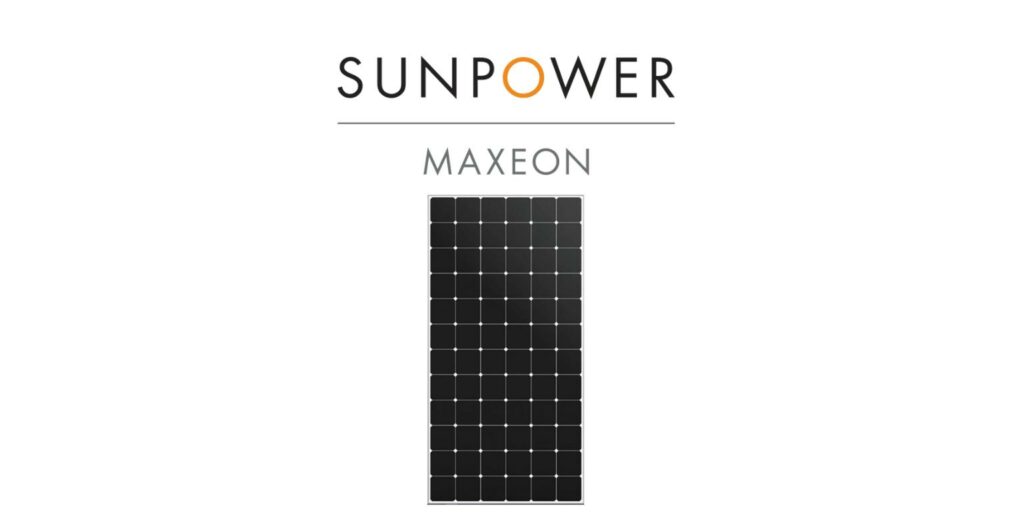
- Patented interdigitated back contact technology
- High-quality silicon
- More sunlight converted into usable electricity
- Enhanced performance
- Improved durability
These features make it a reliable choice for long-term investments.
Another unique feature of the Maxeon 7 is the integrated microinverter on the back of each panel, which sets it apart from other panels.
This microinverter optimises the power output of each panel individually, ensuring maximum efficiency even in partially shaded conditions. With such advanced technology and high efficiency, the SunPower Maxeon 7 is a top choice for homeowners looking to maximise their solar power generation.
AIKO N-Type ABC White Hole Series
The AIKO N-Type ABC White Hole Series is another top-performing solar panel in 2025, boasting a record-breaking efficiency of 24%.
This high efficiency means that these residential solar panels can generate more electricity from the same amount of sunlight compared to many other panels on the market.
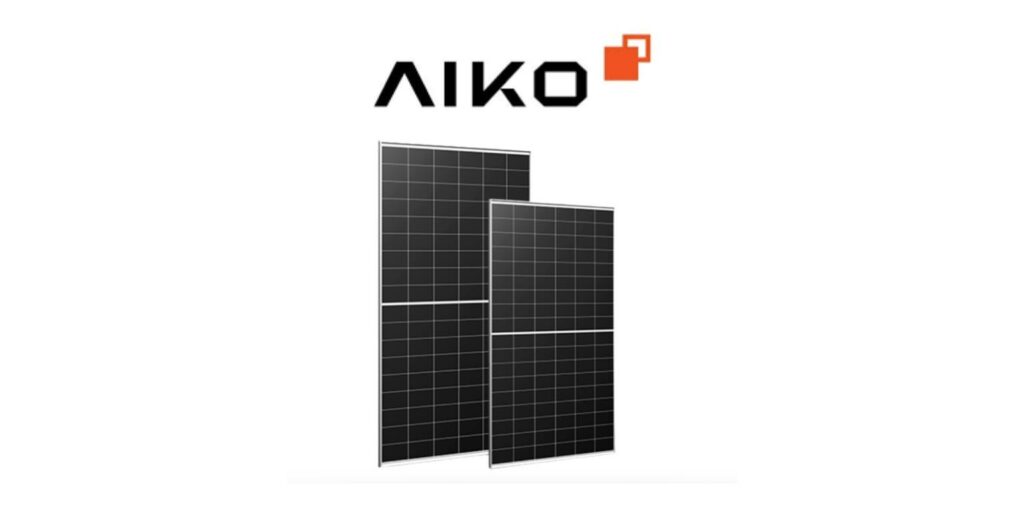
The AIKO series achieves this impressive performance through advanced cell technology and high-quality materials, ensuring long-term reliability and excellent energy production.
In addition to its high efficiency, the AIKO N-Type ABC White Hole Series panels have the following features:
- 27% lighter than typical solar panels
- Easier to install
- Less demanding on roof structures
- Ideal for residential installations
- Attractive option for homeowners looking to optimise their solar energy systems
REC Group Alpha Pure-R
The REC Group Alpha Pure-R offers:
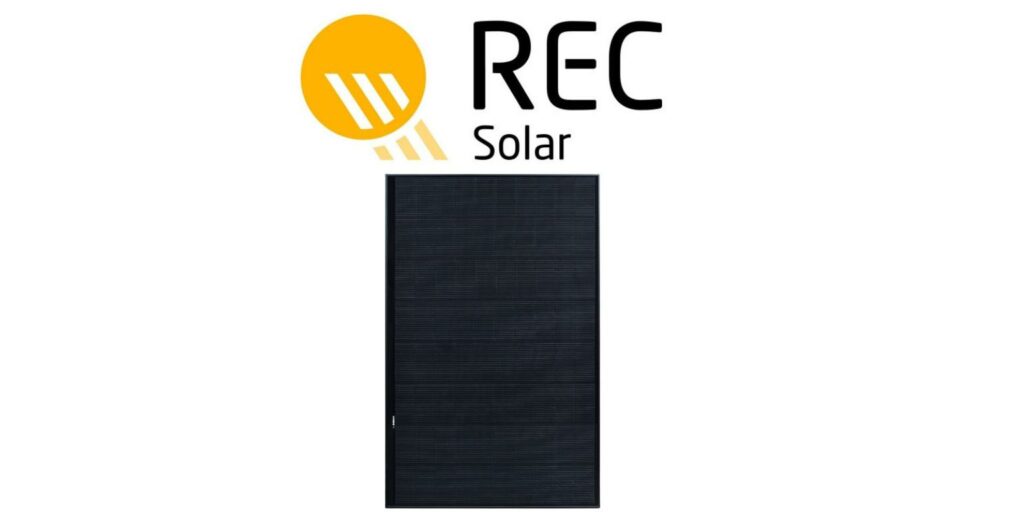
- High efficiency with an efficiency rating of 22.6%
- Reliable performance with a power output of 430 watts
- Exceptional performance under low-light conditions
- Versatility for various climates
- Consistent energy production, even on cloudy days or late in the afternoon
However, it’s essential to note that the Alpha Pure-R panels have the following specifications:
- Weight: 28.6kg
- Performance: No impact on performance
- Mounting systems: May require more robust mounting systems
- Installation: Requires careful installation
Despite this, the high efficiency and excellent low-light performance of the REC Group Alpha Pure-R make it a reliable and efficient choice for homeowners looking to invest in solar energy.
Start Your Solar Project Today
Best Solar Panels & Battery Storage Installation Deals
We price match too!
Factors Affecting Solar Panel Efficiency
Several factors can influence the efficiency of solar panels, ranging from the type of solar cells used to the installation variables and climate conditions.
Grasping these factors is key for optimising your solar system’s performance and maximising your investment.
From the type of solar cells to the installation variables and the climate, each element plays a significant role in determining overall panel efficiency. Breaking down these factors into more detailed sections will enhance our understanding of their impact.
Type of Solar Cells
The type of solar cells used in panels plays a crucial role in determining their solar cell efficiency. Monocrystalline solar panels, made from a single, pure crystal of silicon, are the most efficient, typically achieving efficiency rates between 20% and 23%.
These panels are known for their high performance and longevity, making them a popular choice for residential installations where space may be limited.
There are three main types of solar panels:
- Monocrystalline panels, which are made from a single crystal structure and have the highest efficiency rate of 18% to 20%.
- Polycrystalline panels, which are made from silicon crystals that are melted together, resulting in a lower efficiency rate of 15% to 18%.
- Thin-film solar panels, which are created by placing thin layers of photovoltaic material on a substrate. They generally have the lowest efficiency rates, ranging from 10% to 13%.
While thin-film panels are lightweight and flexible, they tend to degrade faster than monocrystalline and polycrystalline panels, making them less ideal for long-term residential use.
Installation Variables
Proper installation is essential for maximising solar panel efficiency.
The angle and direction of the panels are critical factors; ideally, panels should be installed at an angle equal to the geographical latitude of the location to ensure maximum sun exposure throughout the year.
Correct orientation, usually facing south in the northern hemisphere, can significantly enhance the panels’ ability to capture sunlight and generate electricity.
Shading is another crucial variable. Even partial shading can drastically reduce the power output of solar panels, sometimes by more than 50%.
Therefore, it’s essential to install panels in areas free from obstructions like trees or buildings that could cast shadows on them. Properly considering these installation variables can greatly improve the overall efficiency of your solar system.
Climate and Weather Conditions
Climate and weather conditions also play a significant role in solar panel efficiency.
Solar panels operate most efficiently at an ideal temperature of around 25°C (77°F), and their efficiency decreases as the temperature rises.
The temperature coefficient, which measures the drop in efficiency for every 1°C increase above 25°C, is a crucial factor to consider when selecting panels for hot climates.
Panels with lower temperature coefficients, such as the REC Group Alpha Pure-R, perform better in high temperatures.
Other weather conditions, such as cloud cover, snow, and wind, can also impact solar panel performance. Here are some ways these conditions can affect solar panels:
- Cloud cover can reduce the amount of sunlight reaching the panels, but some panels are designed to generate electricity even in low-light conditions, making them suitable for cloudy areas.
- Snow accumulation can halt solar panel operation if it covers the panels, but the tilt of the panels often allows snow to slide off, mitigating this impact.
- High humidity can lead to corrosion and performance degradation over time, making it essential to choose panels designed to withstand such conditions.
Start Your Solar Project Today
Best Solar Panels & Battery Storage Installation Deals
We price match too!
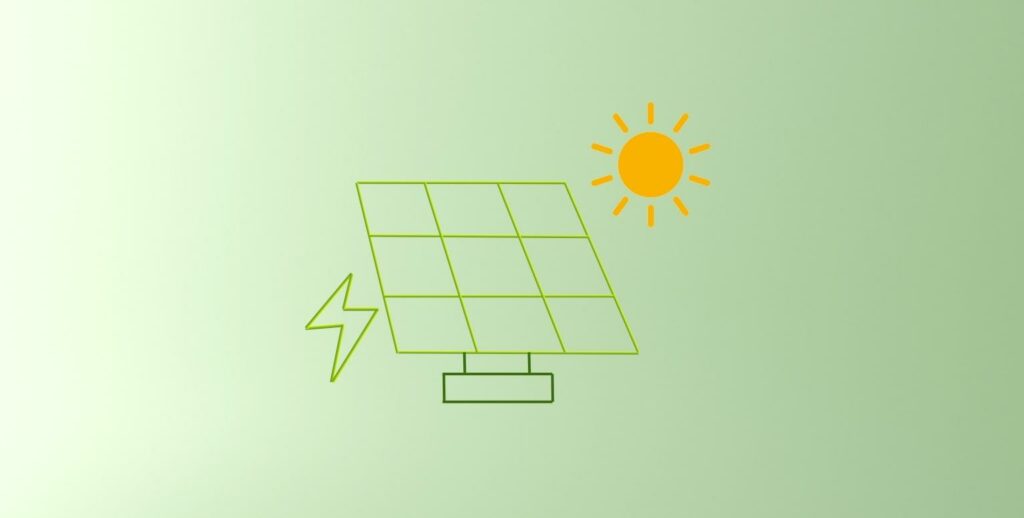
Efficiency vs Cost: Is It Worth It?
While considering solar panels, it is important to weigh the cost of solar panels against efficiency.
More efficient solar panels, such as monocrystalline panels, tend to be more expensive, often ranging from £1 to £1.50 per watt. However, they convert a higher percentage of sunlight into electricity, which can lead to significant savings on energy bills over time.
Using premium efficiency panels can increase the cost of a 7-kilowatt solar system to around £20,000, as opposed to using standard efficiency panels, which could bring the cost closer to £15,000.
Despite the higher upfront cost, investing in higher efficiency panels can offer long-term benefits, such as lower energy bills and reduced carbon footprint.
Panels with higher wattage have the capacity to generate more electricity. This is crucial for meeting energy needs and maximising efficiency.
Ultimately, the best overall solar panel is determined by the lowest levelised cost of electricity (LCOE), which considers both the cost and the efficiency of the panels.
Increasing Your Solar System’s Efficiency
Regular maintenance, monitoring systems, and optimal placement are fundamental for maximising the efficiency of your solar system.
Regularly inspecting your system for any signs of wear or damage can prevent long-term efficiency losses. Dust and debris on the panels can significantly reduce their ability to generate electricity, making regular cleaning crucial.
Monitoring systems are another key component. Solar monitoring software allows homeowners to track their system’s performance and identify issues early, ensuring optimal efficiency.
Ensuring that solar panels are installed in the best possible location on your property, with maximum sun exposure and minimal shading, is also critical for maintaining high efficiency.
Regular Maintenance
Regular maintenance is vital for keeping your solar panels operating at peak efficiency.
Dirt, dust, and chemical residues on the panels can reduce efficiency by up to 0.2% when covered in a layer of chemical build-up.
Regularly cleaning the panels can prevent these efficiency losses and ensure that they are always performing at their best.
It’s recommended to perform general maintenance at least twice a year to keep your solar system in optimal condition.
This maintenance includes cleaning the panels, checking for any signs of damage or wear, and ensuring that all components are functioning correctly. By staying proactive with maintenance, you can maximise the lifespan and efficiency of your solar panels.
Monitoring Systems
Solar monitoring systems are essential for tracking the performance of your solar panels.
These systems provide real-time data on energy production and system performance, allowing homeowners to identify and address issues promptly.
Monitoring platforms provided by solar inverter manufacturers can help homeowners track both energy production and consumption, ensuring that their systems are operating efficiently.
Advanced monitoring systems can also track usage patterns, helping homeowners optimise their energy consumption to align with solar power generation.
By regularly checking system performance through monitoring software, homeowners can identify potential issues early and take corrective action to minimise downtime and maximise efficiency.
Optimal Placement
Optimal placement of solar panels is crucial for maximising their efficiency. Here are some tips for ensuring optimal placement:
- Install panels in areas with maximum direct sunlight exposure to capture as much solar energy as possible.
- Avoid shaded areas, as shade can significantly reduce panel performance.
- Ensure that panels face the sun as much as possible throughout the day for optimal performance.
By following these tips, you can maximise the efficiency of your solar panels and generate more renewable energy.
The optimal angle for solar panels is typically equal to the geographical latitude of the installation site, which ensures maximum energy production throughout the year.
By carefully considering the placement of your panels, you can significantly enhance the efficiency and overall performance of your solar system.
Start Your Solar Project Today
Best Solar Panels & Battery Storage Installation Deals
We price match too!
Choosing the Right Solar Installer
Selecting a suitable solar installer is pivotal for a successful solar installation. Here are some key qualities to consider when selecting a solar installer:
- Look for companies with at least five years of experience, as they are likely to be more reliable and have a proven track record.
- Positive consumer reviews can give you an idea of the quality of service provided by the installer.
- Certified, well-trained crews ensure that the installation is done correctly and safely.
By considering these qualities, you can find a reputable solar installer for your project.
Locally owned solar companies often provide more personalised and responsive customer service compared to large national companies.
Be cautious of companies with overly pushy sales tactics or prices that seem too good to be true.
Additionally, ensure that the company employs their own installation crew to maintain consistent quality and accountability throughout the installation process.
Additional Considerations When Buying Solar Panels
When purchasing solar panels, there are several additional factors to consider beyond efficiency and cost. Warranties are a crucial aspect, as they cover potential defects and ensure the long-term reliability of the panels.
Warranties can include both product and performance guarantees, with some panels offering warranties of up to 25 years.
Choosing the right solar panels and inverters that fit your energy needs is also essential for optimising system efficiency.
Solar panel data sheets provide detailed dimensions, performance metrics, and internal chemistry, helping customers make informed comparisons.
By considering these additional factors, you can ensure that you make a well-informed decision when purchasing solar panels.
Summary
In summary, solar panel efficiency is a crucial factor to consider when investing in solar energy.
The top efficient PV panels of 2025, including the SunPower Maxeon 7, AIKO N-Type ABC White Hole Series, and REC Group Alpha Pure-R, offer impressive efficiency ratings and advanced technologies that set them apart from the competition.
Understanding the factors that affect solar panel efficiency, such as panel type, installation variables, and climate conditions, can help you optimize your solar system’s performance.
Choosing the right solar installer and considering additional factors like warranties and power output are also essential for a successful solar installation.
By taking these factors into account, you can make a well-informed decision and maximise the efficiency and long-term benefits of your solar investment.
Embrace the future of renewable energy with confidence and make the most of the advancements in solar technology.
Frequently Asked Questions
What is solar panel efficiency, and why is it important?
Solar panel efficiency is important because higher efficiency panels generate more electricity from the same amount of sunlight, leading to reduced energy bills and a smaller carbon footprint. This can have a significant impact on both finances and the environment.
What are the top efficient solar panels of 2025?
The top efficient solar panels of 2025 are the SunPower Maxeon 7, AIKO N-Type ABC White Hole Series, and REC Group Alpha Pure-R, known for their impressive efficiency ratings and advanced technologies.
How does the type of solar cell affect panel efficiency?
The type of solar cell affects panel efficiency, with monocrystalline solar panels being the most efficient, achieving efficiency rates between 20% and 23%.
What factors should I consider when choosing a solar installer?
When choosing a solar installer, focus on companies with at least five years of experience, positive consumer reviews, and certified crews while avoiding overly pushy sales tactics. These factors can help you make an informed decision and ensure a smooth installation process.
Are higher efficiency solar panels worth the extra cost?
Yes, higher efficiency solar panels are worth the extra cost due to their long-term benefits like lower energy bills and reduced carbon footprint, which outweigh the initial investment. The best choice is determined by the lowest levelised cost of electricity (LCOE).
Start Your Solar Project Today
Best Solar Panels & Battery Storage Installation Deals
We price match too!
Written by
Start Your Solar Project Today
Best Solar Panels & Battery Storage Installation Deals
We price match too!
What is in this article?
- Key Takeaways
- Solar Panel Efficiency: What is it?
- What is the average solar panel efficiency?
- Top Efficient Solar PV Panels of 2025
- Factors Affecting Solar Panel Efficiency
- Efficiency vs Cost: Is It Worth It?
- Increasing Your Solar System’s Efficiency
- Choosing the Right Solar Installer
- Summary
- Frequently Asked Questions





